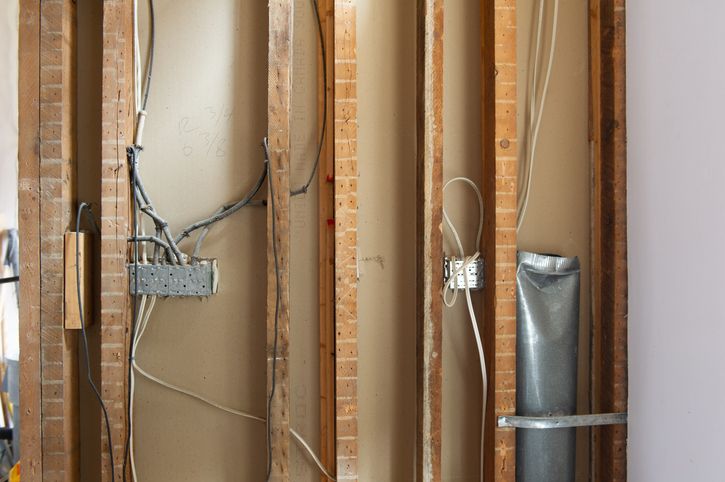When you’re buying an older home, there are two types of wiring of concern: aluminum wiring and knob and tube wiring. Outdated wiring is a major cause of house fires and can be a safety hazard for you and your family.
Knob and Tube Wiring
Knob and tube wiring was used in home construction from around the early 1900s through the 1950s. Also called open wiring, this type of electrical system is not an issue by itself. The issue with this type of wiring is that over the years, many of these wiring systems have been modified or added to in ways that are dangerous. One example of such a modification is changing the fuses to higher amp fuses. A knob and tube electrical system is equipped with 15-amp fuses, which in some cases can cause the fuse to blow or trip with the higher energy demands of today’s appliances and electronics. To prevent the fuses from blowing as often, some homeowners have replaced the 15-amp fuses with 25 or 30-amp fuses. Certainly, they blow or trip less frequently, however the wiring was not intended for this and results in the wiring overheating, creating a fire hazard.
Another common issue with knob and tube wiring is that in many cases, homeowners have added extra outlets to the existing wiring system–extra outlets that this wiring system is not designed to handle. Knob and tube wiring also doesn’t have a ground conductor (third prong), making it incompatible with many modern appliances. (Note: All wiring systems installed in homes from 1950 to 1960 did not include ground conductors.) This type of wiring can still work safely if it is protected by a 15-amp circuit only, no damage has occurred to the wiring over the years and no extra outlets or components have been added. In most cases, the safest and best long-term solution is to have the home totally rewired with modern wiring and components.
Aluminum Wiring
Aluminum wiring was most commonly used in homes from 1965-1976. The most common problems with this type of wiring are overheating and failing of the wiring terminals. Signs of these issues include flickering lights, discolored receptacles and smells of burning plastic. Not all aluminum wiring is dangerous. It can be safe if proper connections and terminals were used and there is no damage to wires. The most common compatibility issue with this type of wiring is that some outlets and lights were wired for a 110-volt circuit, which is not designed to handle the more common 220-volt appliances and electronics.
If your home inspector finds outdated wiring in your home, such as aluminum wiring or knob and tube wiring, he will likely recommend you schedule a thorough inspection with a licensed electrician. Electricians are trained in the evaluation and safety of all types of wiring systems and can best assess the wiring system you have and if it will need to be replaced.






